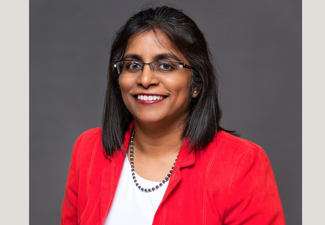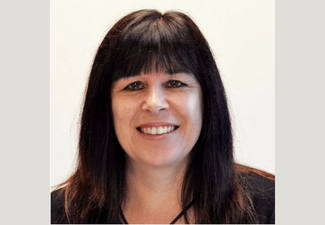Catholic Healthcare’s pastoral and palliative care specialists gathered to attend the Pastoral Care Online Conference 2021 - Reaching Out.
The conference takes place every two years and is normally held in person, but was held via Zoom this year. Over 120 participants attended, including those who work in pastoral care and palliative care. The conference began with a welcome message and reflection from Andrew Nee, Director of Mission.
Associate Professor Natasha Michael, Director of Palliative Medicine at Cabrini Health, spoke first on Palliative care – exploring spiritual and existential issues in families facing a serious illness.
Associate Professor Michael’s address focused on insights into the ethics of end-of-life matters, referencing a pivotal Australian evidence-based study examining spirituality and religiosity across St Vincent’s, Hammond Care and Cabrini, in the palliative medicine population. The multi-site study surveyed over 240 patients and over 100 care givers.
The study used a ‘spirituality scale’ of measurement called the ‘Functional Assessment of Chronic Illness Scale’ to determine levels of spiritual satisfaction in those surveyed. It was found that those with a Christian or religious background showed higher scores of spiritual wellbeing on average, when faced with a difficult situation - in that they had better outcomes, less depression and were able to draw more from internal resources – or an internal ‘well’ compared to those of non-religious backgrounds. Associate Professor Michael explored how this data reinforces notions that spirituality and religiosity are key elements and necessary for accurately measuring spiritual wellbeing in palliative care settings.
For care givers, the survey demonstrated that over 80 percent felt that organisations needed to provide more supports for them. Particularly during COVID-19, the lack of support in the way of meeting care givers’ material and physical needs has been apparent. For example, during normal times, organisations can often support care givers’ dietary needs by offering a hot meal, providing an accessible chapel at the hospital they visit, in addition to providing other supports that are beyond ‘standard care’. However, these supports have been lacking during COVID-19 and have thus highlighted the issue of lack of care giver support.
Another evidence-based study that was discussed compared Australia with the United States and Korea. This study overwhelmingly reinforces that in Australia care givers require more spiritual support within the palliative medicine population, compared with other countries.
The second part of Associate Professor Michael’s presentation focused on existential issues in pastoral care contexts, examining the domains of ‘existential distress’ that people face when confronting death.
Common themes that often arise in patients experiencing this ‘existential distress’ include:
- A loss of one’s personal social networks and support systems
- Increasing feelings of hopelessness and withdrawal
- A loss of identity
- A journey into a ‘difficult space’
- Increasing negativity and depression
A video was shown of a case study of a patient called ‘Claire’, a tongue-cancer sufferer and former Chief Executive Officer of Telstra. The graphic video depicted Claire’s vivid struggles with existential distress-related issues, including her feelings of increasing helplessness, hopeless and despair, common to many patients facing death.
Associate Professor Michael concluded by raising core questions about how those working in palliative care can effectively help patients like Claire. She emphasised the notion of ‘deep listening’ with patients facing death and how palliative care workers can adapt to be non-judgemental and seek to build authentic connections with patients facing death.

To access a copy of Associate Professor Michael's (pictured above), presentation click on the link -
Click here
Susan Marcuccio, National Supervision Director at Chaplaincy Australia, spoke on Self care – addressing self care for pastoral care coordinators.
Susan’s presentation was highly interactive and focussed on the importance of the notion of ‘caring for the carers’. She addressed how important it was for those who work in ‘helping professions’ to be able to receive quality non-judgemental confidential support, and the opportunity to engage in transformational learning.
The presentation began by looking at the key concept of ‘nourishing ourselves to nurture others’, and how carers can supply (for themselves) what is necessary for life, health and growth.
Susan presented a ‘Self Care Model’ and discussed each of the elements. The key issues identified were being able to conduct a self-assessment and to know one’s ‘calling’; which in turn helps when administering and practicing self care.
Using her ‘iceberg analogy’, Susan discussed the importance of being able to understand other people’s (and our own) worldviews. She reinforced the need to delve deeper into examining other people’s values and beliefs, in order to better understand what motivates and drives them, with the idea that carers can also then reflect on their own needs using the same approach.
Another useful model that was put forward was the ‘triage model’ which looked at how carers can balance their ‘personal’, ‘work’ and ‘spiritual’ lives. Using a traffic light example, Susan stepped through practical ways to assess the level in each domain, and how to gauge when a certain area was in danger. For example, assessing whether one’s work life is faring well overall, but perhaps one’s personal life may be suffering as a consequence. She analysed and spoke of how each area of our lives can intersect and affect other areas. She suggested using the model as a useful tool to gain a better understanding of our holistic self and our overall wellbeing. It was reinforced that carers need to make sure that their personal growth matches their professional growth as a part of integrated self care, and living life to the full.
The Pastoral Care Online Conference 2021 – Reaching Out was a highly successful event, providing expert insights into the field of palliative care. Participants were able to network throughout the morning in breakout sessions, and similarly the Q & A sessions were also an opportunity to interact with the speakers themselves.

To access a copy of Susan Marcuccio's (pictured above), presentation click on the link -
Click here
To watch the recording of the event click here:
https://www.youtube.com/watch?v=qLEy8a-OpNQ



